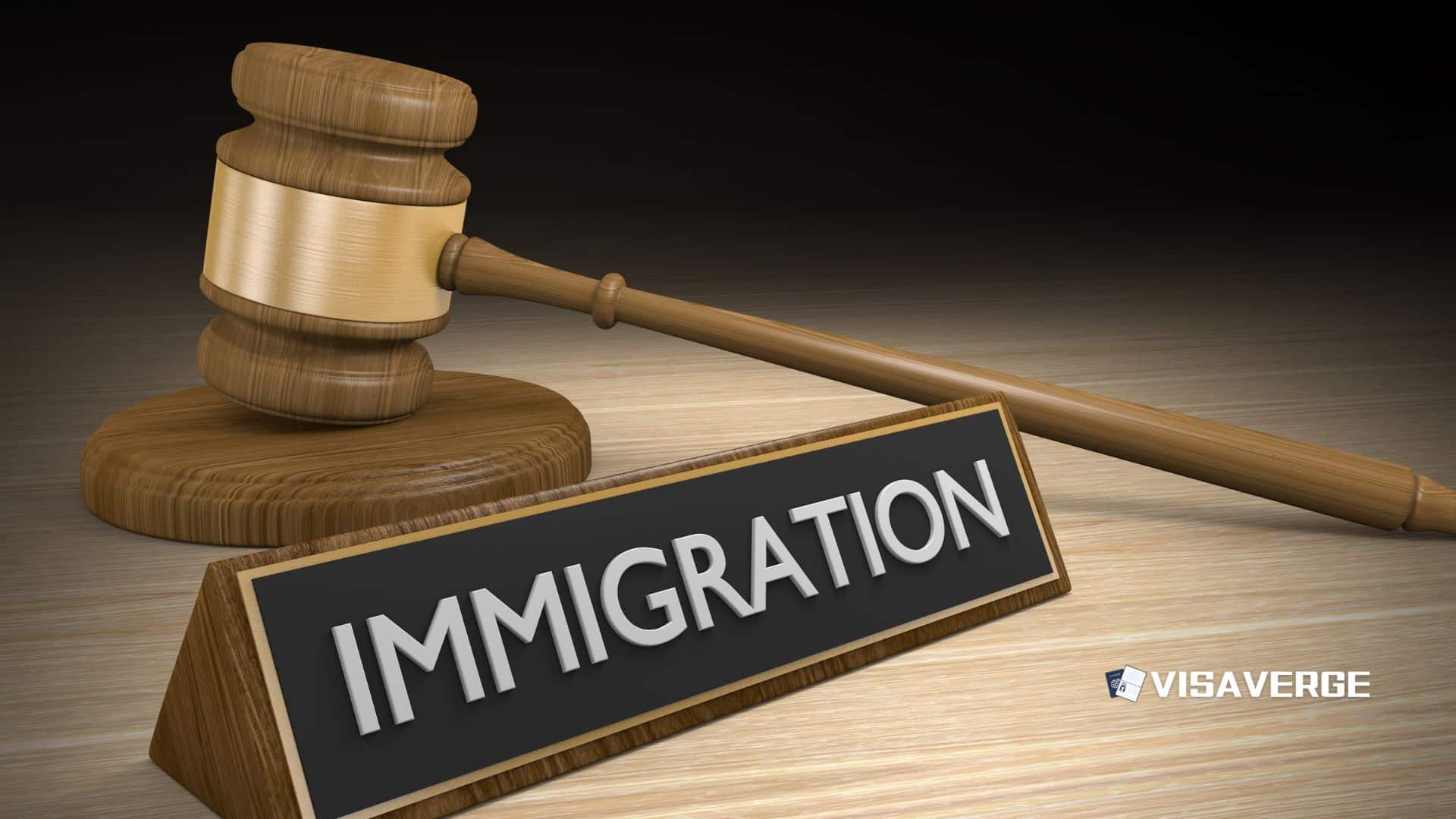Key Takeaways
• Ordinance 025-0138 restricts city funds from aiding undocumented immigrants and increases oversight of DEI programs.
• Jacksonville’s Illegal Immigration Enforcement Act criminalizes undocumented presence with jail time and funds fingerprinting devices.
• Public opinion shows only 2% of residents prioritize immigration; enforcement faces legal challenges and opposition.
Jacksonville’s Immigration Ordinances: An Analytical Review of Recent Local Policy and Its Impacts
Purpose and Scope

This analysis examines the recent immigration ordinances passed in Jacksonville, with a focus on Ordinance 025-0138 and the broader legislative context. The review explores the motivations behind these laws, the positions of key stakeholders such as Councilmember Rory Diamond, the enforcement controversies, and the potential effects on Jacksonville’s immigrant communities. The goal is to provide a clear, evidence-based understanding of the ordinances’ purpose, implementation, and likely outcomes, while also addressing the broader trends and challenges in local immigration enforcement.
Methodology
This review draws on official city council records, public statements from city officials, polling data, and reports from advocacy groups. The analysis includes:
- A summary of the legislative process for Ordinance 025-0138 and related measures
- A breakdown of the key provisions and amendments
- A presentation of stakeholder positions and public opinion data
- An assessment of enforcement challenges and legal context
- A discussion of practical implications and future outlook
Visual descriptions are included to help readers understand the data and trends, and comparisons are made to highlight patterns and potential impacts.
Key Findings Upfront
- Ordinance 025-0138, sponsored by Councilmember Rory Diamond, seeks to restrict city funds from supporting undocumented immigrants and to increase oversight of grants and Diversity, Equity, and Inclusion (DEI) programs.
- The ordinance is part of a broader local push, following the earlier Jacksonville Illegal Immigration Enforcement Act, to criminalize undocumented presence in Duval County and equip law enforcement with new tools.
- Enforcement of these laws is currently unclear due to conflicting legal advice and a federal court injunction affecting similar state statutes.
- Public opinion in Jacksonville does not rank immigration as a top concern, with only 2% of residents identifying it as the city’s most important issue.
- The ordinances have sparked strong reactions from both supporters and opponents, with concerns about racial profiling, public safety, and potential legal costs for the city.
- The final vote on Ordinance 025-0138 is scheduled for June 12, 2025, and its implementation may face further legal and practical challenges.
Data Presentation and Visual Descriptions
To help readers understand the scope and impact of Jacksonville’s recent immigration ordinances, the following sections break down the legislative process, enforcement issues, and stakeholder positions using clear, accessible language and visual descriptions.
Legislative Timeline and Content
1. The Jacksonville Illegal Immigration Enforcement Act (Ordinance 2025-0147-E)
- Passed: March 25, 2025 (12-5 vote)
- Effective: April 2, 2025
- Key Provisions:
- Makes it a local crime for undocumented persons to enter or reside in Duval County
- Allows up to 60 days in jail for repeat offenders
- Allocates $76,250 for 25 mobile fingerprinting devices for the Jacksonville Sheriff’s Office (JSO)
Visual Description:
Imagine a timeline stretching from March to June 2025. In late March, the first ordinance is passed. By early April, it becomes law. The city council chambers are filled with debate, and the mayor’s office issues a statement expressing concern but does not veto the law.
2. Ordinance 025-0138 (The Second Immigration Ordinance)
- Introduced by: Councilmember Rory Diamond
- Finance Committee Approval: June 4, 2025 (unanimous)
- Scheduled Full Council Vote: June 12, 2025
- Key Requirements:
- Prohibits city funds from being used for services to undocumented immigrants
- Requires detailed reporting on federal grants, DEI practices, and public housing occupancy by undocumented immigrants
- Includes exceptions for UF Health, sex trafficking victims, and a one-year exemption for Kids Hope Alliance
- Protects Cultural Service Grants recipients, prohibiting only “knowing” provision of city funds to undocumented immigrants
Visual Description:
Picture a city council meeting where amendments are discussed. Councilmember Rory Diamond presents the bill, and committee members debate exceptions for health care and vulnerable groups. The final version is more targeted, with specific carve-outs for certain organizations.
Enforcement Controversy and Legal Context
Enforcement Dispute
- On May 29, 2025, City Council President Kevin Carrico claims on social media that the Office of General Counsel directed JSO not to enforce state and local immigration laws.
- The mayor’s office responds by releasing an email from General Counsel Michael Fackler, advising JSO not to enforce Chapter 605 of the Jacksonville Municipal Code while a federal court injunction is in place against similar state laws.
- JSO states it will continue to enforce federal, state, and local laws, despite the legal advice.
Visual Description:
Envision a series of public statements and emails exchanged between city officials. There is confusion and disagreement about what the law requires, with legal counsel urging caution to avoid lawsuits, while law enforcement insists on continuing their duties.
Legal Background
- The federal court’s injunction of Florida Statutes SS 811.102-103 has created uncertainty about the enforceability of local ordinances that mirror or expand upon state law.
- The mayor’s office frames the legal advice as a protective measure to shield the city from costly litigation.
Comparison to Other Cities:
Jacksonville’s approach is more aggressive than many other cities, which often avoid direct local enforcement of federal immigration law due to legal risks and community concerns.
Stakeholder Positions
Supporters
- Councilmember Rory Diamond: Argues that taxpayer money should not support undocumented immigrants and that the ordinance is a necessary follow-up to earlier enforcement measures.
- Councilmember Kevin Carrico: Claims the law gives law enforcement more tools and criticizes the mayor’s office for allegedly undermining enforcement.
- Councilmember Nick Howland: Frames the ordinance as aligning with President Trump’s policies and keeping neighborhoods safe.
Opponents
- Mayor Donna Deegan: Warns of potential lawsuits and the risk of stoking fear among lawful immigrants. She allowed the first ordinance to become law without her signature, citing a lack of a clear path to a veto.
- Councilmember Jimmy Peluso: Calls the ordinance a stain on the city and argues it targets vulnerable populations by turning a civil violation into a criminal offense.
- Jacksonville Immigrant Rights Alliance: States the ordinances unfairly target immigrant families, undermine public safety, and distract from more pressing city issues.
Community Voices
- Maria Garcia (Jacksonville Immigrant Rights Alliance): Criticizes the focus on immigration enforcement over issues like housing and infrastructure, arguing that the ordinances target people who come to work and support their families.
Public Opinion and Trends
Polling Data
- According to a University of North Florida Public Opinion Research Lab poll (June 2025), only 2% of Jacksonville residents consider immigration the most important problem facing the city.
- This data contrasts with Councilmember Diamond’s claim that support for President Trump in the 2024 election (50.1% to 48.7%) reflects backing for local immigration enforcement.
Visual Description:
Imagine a pie chart showing the city’s top concerns. Immigration is a tiny slice, while issues like housing, crime, and infrastructure dominate the chart.
Trends and Patterns
- There is a disconnect between the priorities of city officials pushing these ordinances and the concerns of the general public.
- The focus on immigration enforcement appears to be driven more by political alignment and national trends than by local demand.
Practical Implications
Potential Effects on Immigrant Communities
- Racial Profiling: Community advocates fear the ordinances could lead to increased racial profiling by law enforcement.
- Reporting Crimes: Immigrants may become more reluctant to report crimes or cooperate with police, fearing arrest or deportation.
- Jail Strain: The Duval County Jail could face overcrowding, with Councilmember Peluso calling it a “civil rights nightmare.”
- Legal Costs: The city may face expensive lawsuits if the ordinances are challenged in court.
Visual Description:
Picture a community meeting where immigrant families express fear and confusion about the new laws. Advocates warn that trust in law enforcement is eroding, and city officials debate the best path forward.
Exceptions and Protections
- The amendments to Ordinance 025-0138 provide some protection for vulnerable groups, such as victims of sex trafficking and children served by Kids Hope Alliance.
- Cultural Service Grants recipients are only prohibited from “knowingly” providing city funds to undocumented immigrants, reducing the risk of accidental violations.
Evidence-Based Conclusions
Summary of Key Points
- Jacksonville’s recent immigration ordinances, especially Ordinance 025-0138, represent a significant shift toward local enforcement of immigration laws.
- The laws are controversial, with strong support from some council members and vocal opposition from the mayor, other council members, and community groups.
- Enforcement remains uncertain due to legal challenges and conflicting advice from city officials.
- Public opinion does not strongly support immigration as a top city issue, suggesting a gap between policy and community priorities.
- The ordinances may have unintended consequences, including reduced public safety, increased legal costs, and harm to vulnerable populations.
Comparisons and Patterns
- Compared to other cities, Jacksonville is taking a more direct approach to local immigration enforcement, despite the risks of legal challenges and community backlash.
- The pattern of passing strict local ordinances, followed by legal disputes and community division, mirrors trends seen in other parts of the United States 🇺🇸.
Limitations
- The full impact of Ordinance 025-0138 and related measures cannot be assessed until after implementation and possible court challenges.
- Data on the number of undocumented immigrants affected, the cost of enforcement, and the outcomes of legal disputes is not yet available.
- The analysis relies on public statements and polling data, which may not capture the full range of community experiences.
Official Resources and Further Reading
For readers seeking more information about local immigration laws and their enforcement, the official U.S. Citizenship and Immigration Services (USCIS) page provides up-to-date details on federal immigration policy and legal requirements.
Actionable Takeaways
- Residents and organizations in Jacksonville should stay informed about the final vote on Ordinance 025-0138 and any changes to enforcement practices.
- Immigrant families and service providers should review the exceptions and protections included in the ordinance amendments.
- Community members concerned about the impact of these laws can contact their city council representatives to express their views.
- Legal challenges may shape the future of local immigration enforcement, so ongoing monitoring of court decisions is important.
Conclusion
Jacksonville’s recent immigration ordinances, led by Councilmember Rory Diamond and supported by others on the city council, mark a new chapter in local immigration policy. Ordinance 025-0138, in particular, reflects a push to limit city resources for undocumented immigrants and increase oversight of public funds. However, the laws have sparked controversy, with concerns about enforcement, legal risks, and the well-being of immigrant communities. As reported by VisaVerge.com, the situation in Jacksonville highlights the complex interplay between local, state, and federal immigration policies, and the need for careful, evidence-based decision-making as the city moves forward. The outcome of the upcoming council vote and any subsequent legal challenges will be critical in determining the future direction of immigration policy in Jacksonville.
Learn Today
Ordinance 025-0138 → A Jacksonville law limiting city funds for undocumented immigrants and increasing oversight on diversity and inclusion programs.
Illegal Immigration Enforcement Act → Local law criminalizing undocumented immigration presence with jail sentences and funding for law enforcement tools.
Diversity, Equity, and Inclusion (DEI) → Programs aimed at promoting fairness and representation across city services and grants.
Federal Court Injunction → A legal order temporarily blocking enforcement of certain immigration laws due to ongoing litigation.
Jacksonville Sheriff’s Office (JSO) → Local law enforcement agency responsible for enforcing laws, including immigration-related ordinances in Duval County.
This Article in a Nutshell
Jacksonville’s new immigration laws, led by Ordinance 025-0138, reflect a strong local push for enforcement amid legal uncertainty and public debate.
— By VisaVerge.com













